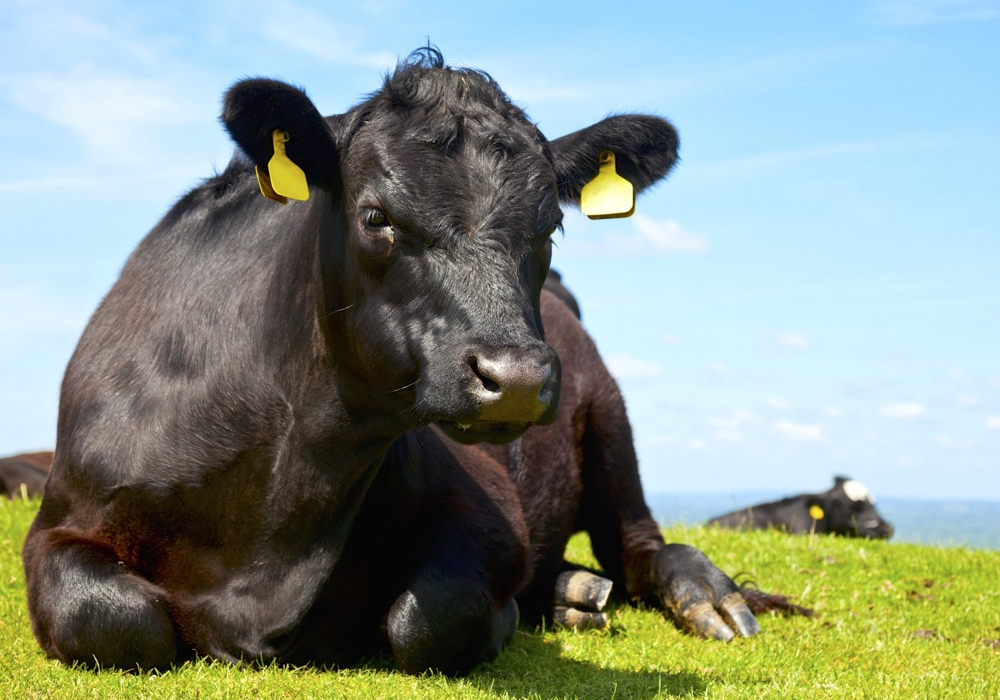Producers support mandatory livestock inspection in Manitoba

Glacier FarmMedia—After years of debate and discussion, cattle producers in Manitoba are supporting mandatory livestock inspection in the province.
Manitoba Beef Producers members passed a resolution at their annual meeting in Winnipeg Feb. 20 for the organization to work with the provincial government “to implement mandatory livestock inspection in Manitoba.”
Eighty-five to 90 per cent of MBP members at the meeting voted in favour of the resolution, giving the group a healthy mandate to move forward.
“It’s something that’s been batted around for an awfully long time (in Manitoba),” said Matthew Atkinson, MBP president and cattle producer from Neepawa.
Read Also

Prairie Wheat Weekly: Modest increases across the region
Western Canadian cash prices for spring wheat and amber durum made small gains during the week ended Feb. 20. Support came from higher prices in the United States wheat complex, but a stronger Canadian dollar limited the increases
Mandatory livestock inspection has been standard practice in other western provinces for decades. In Manitoba, many ranchers remained skeptical about the value of the service.
That attitude changed over the last couple of years. With skyrocketing prices, cattle have become extremely valuable. There have been multiple and widely reported cases of cattle rustling in the province, where thieves were able to sell stolen livestock worth tens of thousands of dollars.
“I don’t know how many people in this room have lost cattle to theft, but our operation has,” Gord Adams from Deloraine said at the meeting.
“I’m a firm believer that if we had livestock inspection at the time, our cattle would have got (identified) at the auction mart they were sold at…. Our value (lost) was about $40,000. If that was in today’s (market), it would be $80,000.”
MBP held meetings last year explaining the value of mandatory livestock inspection to cattle ranchers.
Livestock inspection involves a visual inspection and issuance of a certificate to identify the livestock during transit.
It provides “prima facie” proof of ownership during transit, meaning the information is correct unless proved otherwise.
“We’ve had in Manitoba, in the last three years, some major frauds … for millions of dollars,” said Rick Wright of the Manitoba Livestock Marketing Association.
“Because of the value, we’re (likely) going to see more theft and more fraud.”
Mandatory inspection makes it harder for thieves to sell cattle, but there are other benefits.
A few companies have been reluctant to finance cattle operations in Manitoba because of issues around livestock ownership and fraud in the province.
“Some major lenders have not taken on many new clients. They have not renewed some contracts because of the security issue,” Wright said.
“I know one (company) that feeds hundreds of thousands of cattle in Alberta and Saskatchewan that doesn’t feed an animal in Manitoba because we have no inspection. They don’t custom feed.”
Mandatory inspection comes with a cost for producers. In Saskatchewan, the price is $2.75 per head of cattle inspected.
That investment is well worth the cost, said another producer at the MBP meeting.
“So we can keep investment in Manitoba for our custom backgrounders and custom feeders, to keep our calf prices strong.”
Mandatory livestock inspection will not happen overnight. It will require many meetings with the government and others in the beef value chain to sort out the details of how it will function in Manitoba.
Atkinson and others at MBP are leaning toward the model in Saskatchewan, where Livestock Services of Saskatchewan oversees mandatory inspection.
“The next step is to reach out to government … and to look at changing legislation or writing legislation that would enact this,” Atkinson said.
“And to pursue potential deals with Livestock Services of Saskatchewan.”
Source: Farmtario.com

